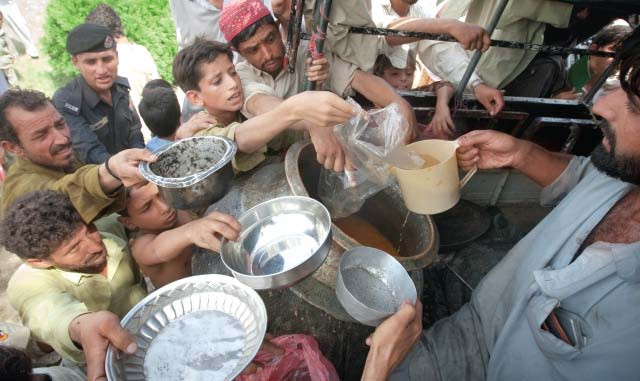Over 51% of flood-hit people are women: UNIFEM
Unifem assesses that the 11 million affected women face several challenges, such as inaccessibility.

“Women need to be included in development plans as of the total number of people affected, 51 per cent are women who will face major development challenges in the future,” Unifem’s country programme director Alice Harding Shackelford told The Express Tribune.
Unifem assesses that the 11 million affected women face several challenges, such as inaccessibility, which would lead to long-term issues.
“At this time of crisis when we are targeting the most vulnerable populations, we must prioritise the recipients of aid,” said Shackelford. “There is little evidence that distribution hubs are reachable by women and they have to physically compete with men to get relief goods.”
Shackelford stressed on gender sensitivity in relief work. “There needs to be awareness and gender sensitivity among aid volunteers and workers should be more organised in terms of distribution. There is data being collected but for development, record and tracking, we need to gather segregated data as women’s needs differ from men’s,” she said.
She said that there inaccessibility of food was highly uneven between the genders. “Women in this situation are socially conditioned to make sacrifices and refrain from claiming limited family resources.” Shackelford also said that women must be given compensation as a priority.
Women’s lack of privacy is another factor that had led to gender-based violence such as sexual violence and harassment, early marriages and domestic violence, Shackelford said. “Safer places need to be built for women. We need to improve the camps and there needs to be a presence of women in committees, those that can relate to and address the issues of women,” she said.
According to Unifem, an alarming number of reports of gender-based violence have come in from south Punjab. “Women have reported cases of sexual harassment in camps where there were mixed groups,” she said, adding that among Unifem’s recommendations was a crime watch and policing initiative.
However, she said, the devastation highlights the opportunity to reach women who had remained inaccessible until now. “Specific and simple solutions need to be adopted to reach out to isolated communities and engage women in activities.”
Published in The Express Tribune, September 30th, 2010.



















COMMENTS
Comments are moderated and generally will be posted if they are on-topic and not abusive.
For more information, please see our Comments FAQ